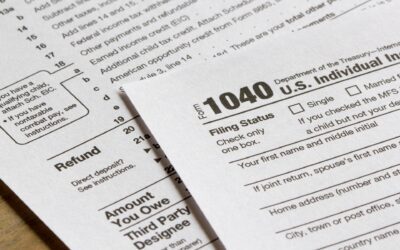This time of year many people start thinking about year-end tax planning. An integral part of tax planning involves the potential for tax-loss harvesting in your taxable portfolio. What we are going to discuss below can only be done in taxable accounts (i.e. individual, joint, UTMA’s, Trusts) and does not apply to IRA or other tax deferred accounts.
Tax-loss harvesting involves taking investments that are worth less than what you paid for them (unrealized losses) and selling them (realized losses). Investment losses can help reduce taxes by offsetting gains and if you offset all of your gains you can deduct an additional $3,000 in capital losses against your ordinary income. By deducting the additional $3,000, an investor in the 37% bracket can save $1,110 in federal taxes. In addition, any realized losses in excess of $3,000 can be carried forward indefinitely to future tax years to offset future capital gains. Therefore, an investor in the 37% bracket who had total unrealized losses of $50,000 in his or her portfolio can recover more than 1/3 of that loss by harvesting now and saving taxes in the future. We believe this is a good strategy to turn something positive from a negative situation.
Many investors avoid tax-loss harvesting because they want to avoid selling something at a loss and possibly miss a rebound. We advise our clients to maintain their asset allocation even while tax-loss harvesting. You can do this by simultaneously selling your asset that has an unrealized loss and purchasing a similarly correlated asset to the one just sold. For example, if you have a large cap US stock fund with a loss, sell it and purchase another large cap US stock fund with similar risk and holdings profile. If you have an individual stock with a large loss, choose a stock in the same industry or sector or comparable market (i.e. sell Coca Cola and buy Pepsi).
Even with the market sell off this year, due to three consecutive double-digit return years in the US stock market (2019-2021), most long-term portfolios will have few losses to realize especially if it is a low turnover portfolio. Any stocks or stock funds purchased in the last two years most likely have losses at this point. Two other places investors may find losses in this current environment are international equities and fixed income. International stocks have underperformed U.S. equities for more than a decade. With the incredible rise in interest rates this year, most bonds and bond funds are worth less than what investors paid for them. The Barclays US Aggregate Bond Index is down year to date through September 30 by (14.61%), the largest bond loss in more than 40 years.
If you do choose to implement tax-loss harvesting, be sure to keep in mind that tax savings should not undermine your investing goals. Ultimately, a balanced strategy and frequent re-evaluation to ensure that your investments are in line with your goals is the prudent approach.
Respectfully Submitted
CRA Investment Committee
Matthew Reynolds, CPA, CFP®
Robert T. Martin, CFA, CFP®
Jeffrey Hilliard, CFP®, CRPC®
Thomas Reynolds, CPA
Gordon Shearer, Jr., CFP®
Joseph McCaffrey, CFP®
This article is for informational and educational purposes only and should not be relied upon as the basis for an investment decision. Consult your financial adviser, as well as your tax and/or legal advisers, regarding your personal circumstances before making investment decisions.







